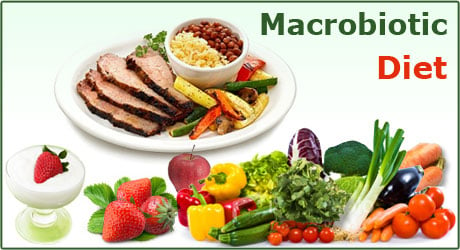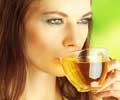About
Macrobiotics is an Oriental theory that lays down guidelines for promoting well-being and longevity through systematic diet consisting mainly of whole grains and beans. Macrobiotics is made up of two Greek words, Macro meaning the bigger picture and Bios meaning life. It is basically more a way of life than a specific diet that was followed in Japan.
The macrobiotic diet probably originated with the teachings of a nineteenth century Japanese natural healer, Sagen Ishizuka. It was introduced to the West by George Ohsawa, a teacher in Japan who studied the eating habits of ancestors, followed the dietary principles of Sagen Ishizuka and claimed to have been cured of a life-threatening disease—tuberculosis.

Chinese philosophy describes the Yin and the Yang as the two opposite, but complementary cosmic forces that operate in all areas of life. Macrobiotics extends the principles of the Yin and the Yang to the realm of food and cooking. The main tenets of the macrobiotic diet are Yin and Yang, meaning Expansive and Contractive forces that are inherent in any food we intake. Ohsawa said if we balance the contractive and expansive forces we will stay away from diseases and live a healthy, happy life. Ohsawa’s original macrobiotic diet was considered too restrictive by many dieticians and the Kushi diet popularized in North America by Michio Kushi in 1978 is seen as a popular alternative to Ohsawa’s macrobiotic diet.
The nutritional aspect of the macrobiotic diet holds to the principle that the body can exist in harmony with Nature and recover its natural good health. It is important to note here that the diet should be based on foods native to ones#$# own climate, as this helps in achieving that "natural balance". The diet should constitute of the following components:-
Grains: 50-60% of this diet is to be composed of whole grains. Those recommended are brown rice, millet, barley, oats, rye, corn, wheat and buckwheat. Breads must be made without yeast and pasta is allowed in small amounts.
Vegetables: 20-30% - Recommended vegetables include green cabbage, kale, broccoli, cauliflower, collards, pumpkin, watercress, chinese cabbage, dandelion, mustard greens, scallions, onions, turnips, carrots and winter squash. Cucumbers, lettuce, celery, chives and dill are also permitted on occasion. Potatoes, tomatoes and eggplants are not permitted as they originated in tropical regions and the fact that they are eaten in temperate climates is believed to contribute to the loss of natural immunity.
Fish, fruit, nuts and seeds can be occasionally consumed. Fruits grown locally and native to ones#$# area have to be consumed.
Along with the recommended grains and vegetables, another 5-10% of the intake should come from soups made with those vegetables and grains listed. A final 5-10% of the intake is from cooked beans and sea vegetables, such as nori or wakame. Although these vegetables are not local for many people, they are recommended because of their high vitamin and mineral content.
Beverages included in the macrobiotic plan are spring or well water and any traditional tea that is without fragrance or stimulants. Eliminate drinks like soda, any artificial drink, colored and aromatic teas, coffee, and strong alcohol.
All animal fat, meat (except the occasional fish), poultry, dairy, refined sugars, simple sugar, honey, molasses, vanilla and chocolate are banned in the diet.
Since the objective is to live in harmony with nature, electrical or microwave cooking is not recommended. These types of cooking cause food to retain less energy and nutrients. Recommended cooking fuels are wood and natural gas.
While following this kind of diet lifestyle changes have to be made such as-
- It is advised that one eat in a relaxed environment, chewing each mouthful of food at least 50 times, and expressing gratitude for the food.
- Meals are recommended 2 or 3 times a day, as long as the portion percentages go along with those recommended previously.
- Drinking should be limited to only when you are thirsty.
- Very long, hot showers or baths are to be avoided as they can take away minerals from the body.
- Cotton should be worn as much as possible because it is a natural fiber.
- At home keep the windows open at some point every day, no matter what the weather, as it is important to have fresh air circulating indoors.
- Another fresh air tip is to have many green plants around to enrich the oxygen in the air. Keep your home neat and clean, as it brings order and balance to your environment.
- Increase exercises such as walking or dancing, spending time outside in Nature and in the sunlight, and minimizing your time spent in front of a TV or computer.The two areas of medicine that report greatest results with the macrobiotic lifestyle are the treatments of AIDS and cancer.
Research has been done on men with AIDS. One way AIDS can be detected is when lymphocytes (the white cells that fight infection) decline in number. A study has shown that when those affected began the macrobiotic diet soon after their diagnosis, they maintained higher lymphocyte counts. There are even documented reports of incurable cancer completely disappearing in people who follow the diet.
Diseases that can be helped
It is believed, Obesity, Tinnitus, Acidity, Ulcer, Skin diseases, Indigestion, Hair loss are some amongst several other diseases that can be mitigated with a macrobiotic diet. Every disease is some form of imbalance in our body. Some may take a longer time to heal but essentially, if we are strict with our diet and knowledgeable about the food dynamics then we can heal our body of many illnesses. If the disease is because of an overly Yin diet, then including Yang foods will tend to balance and heal the person. Similarly illnesses arising from excessive Yang food items can be controlled by balancing with suitable Yin food items.









